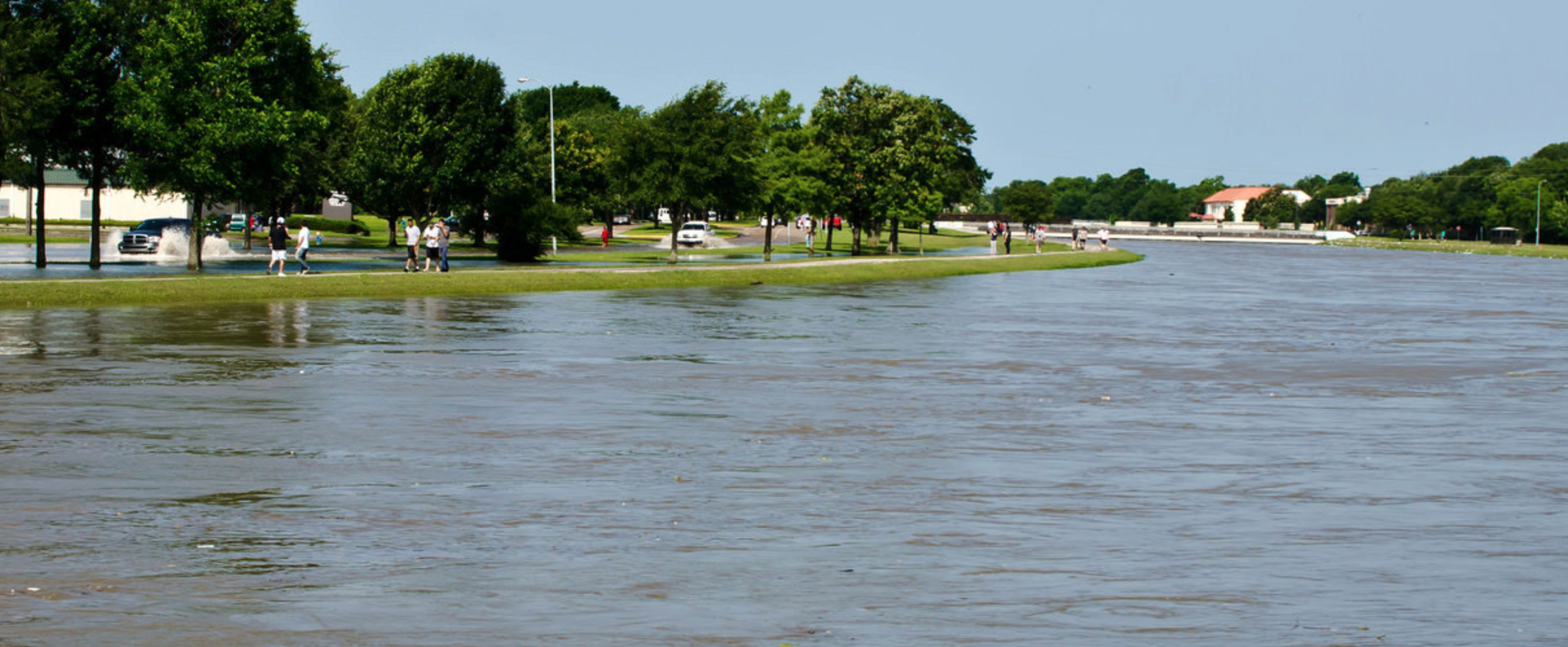“Why don’t Meyerland residents pick up and move? Why would anyone stay in a home and a neighborhood that flooded three times in three years?”
After a series of floods, Meyerland has earned a reputation. But Rice University sociology professor and Kinder Institute researcher Rachel Kimbro wrote about the community behind that reputation, seeking to understand the answer to that common post-storm refrain. In the journal Contexts a piece titled “Hurricane Party,” Kimbro writes about the familiar phenomenon of gathering friends to wait out potentially devastating storms with dark humor and punch.
“More than three dozen neighbors and kids flowed in and out of the house that evening. They pulled up chairs and cushions or sat on the floor as they drank wine, ate good food, and enjoyed the company (if a little uneasily),” Kimbro writes.
Low-lying urban areas, like Houston, are more prone to flooding than other urban areas, according to a recent study.
“But the reality is that no word inflames more than ‘retreat’ – as in moving people, even whole towns, away from danger,” wrote Harvey Molotch in CityLab. “And altering landscapes to ward off danger from climate change can run afoul of heartfelt and robust interests. Besides their economic investments, people and organizations have all sorts of sunk costs in local communities. ‘Retreat’—and even more modest alternatives—arouses significant resistance.”
Molotch spells out a number of reasons for what he describes as the “hold-out” problem, including political leaders who rely on populations in certain, sometimes vulnerable, jurisdictions. But Kimbro puts a human face on it.
“The party guests had prepared their homes for the worst before heading to the party for one last celebration before the deluge,” writes Kimbro. “In Meyerland, the community runs as deep as the floodwaters.”
The column is part of a longer research project looking at the effect of Harvey on mothers in the Houston area, but it’s also a deeply personal essay about one mother’s experience.
“Some of us can’t leave, our life savings sunk into unsellable properties, but most of us simply won’t leave the community that has sustained us through multiple disasters. We don’t expect most people to understand: this is our home, these are our people, this is our hurricane party.”

